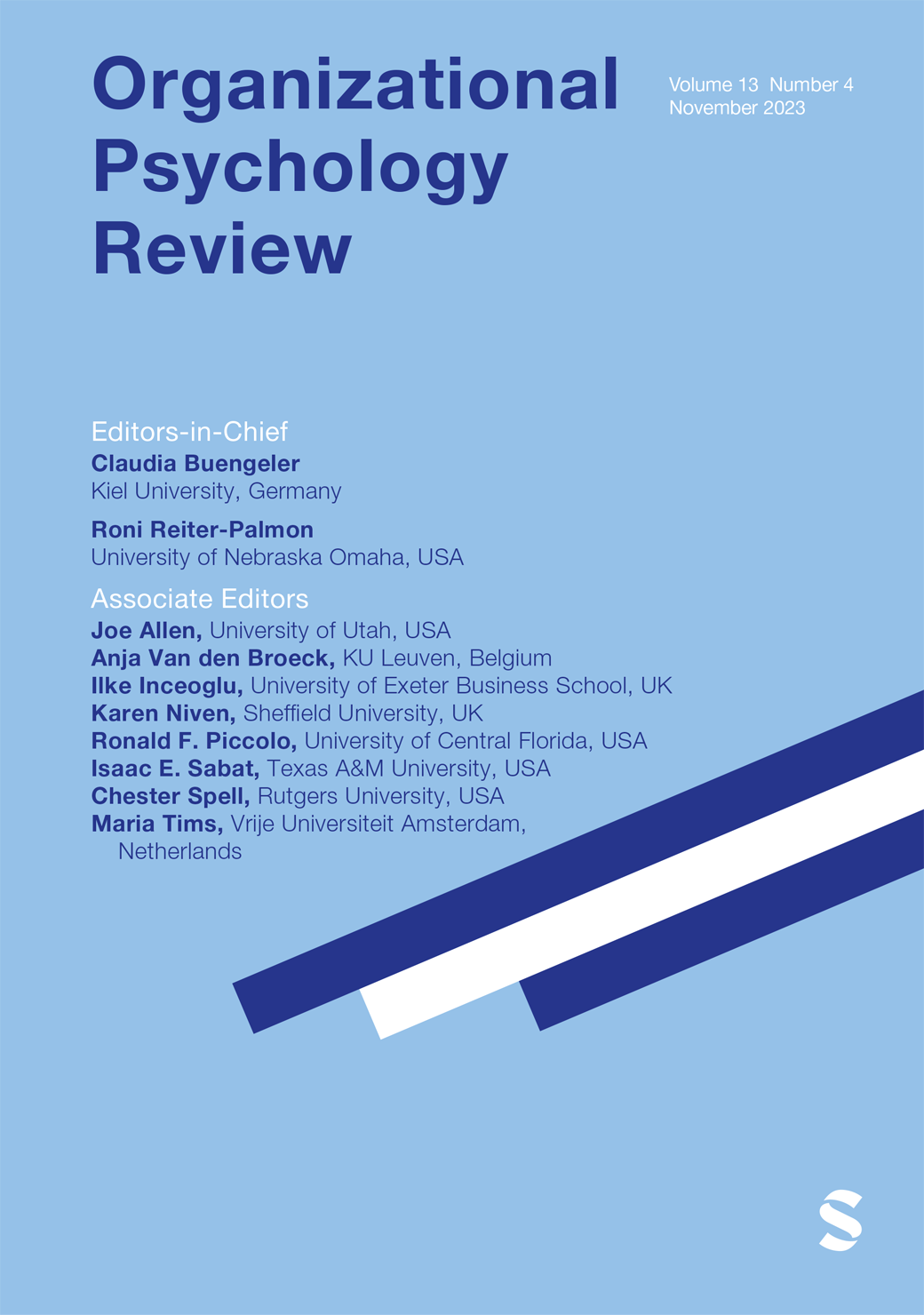在饮水机旁洒茶:职场八卦文献的荟萃分析
IF 7.1
1区 心理学
Q2 MANAGEMENT
引用次数: 1
摘要
本文对职场八卦作为个人、关系和组织结果的预测因子进行了荟萃分析。我们的系统综述纳入了52项独立研究(n = 14,143)。研究结果表明,消极的职场八卦比积极的职场八卦对工作结果的影响更大。此外,研究结果表明,负面八卦与八卦对象的态度/情感结果和同事关系呈不成比例的负相关。出乎意料的是,研究结果还表明,负面八卦的发送者和接收者也可能经历高度有害的结果;事实上,负面八卦与幸福感、敬业度/绩效、主管关系和组织结果之间的关系对八卦参与者来说比目标更负向,尽管这些关系的因果关系方向尚未最终确定。总的来说,我们的研究结果表明,组织和管理者应该认真对待负面八卦对整个组织健康的威胁,同时利用积极八卦的潜在好处。这篇论文提出了一项关于职场八卦作为工作相关结果预测因素的元分析。结果——基于52项独立研究,总共雇佣了14143名独立研究参与者——表明,消极的职场八卦对个人、关系和组织的影响比积极的八卦更大。此外,我们的研究结果表明,与交换八卦的个体相比,消极八卦的目标在态度/情感和同事关系方面经历了最差的结果。出乎意料的是,结果模式还表明,在工作中交流负面八卦的人也可能经历高度有害的结果,尽管这些关系的因果关系方向尚未最终确定。总的来说,我们的研究结果表明,组织和管理者应该认真对待负面八卦对整个组织健康的威胁,也可能能够利用积极八卦的潜在有益影响。最后,我们讨论了我们研究结果的含义。本文章由计算机程序翻译,如有差异,请以英文原文为准。
Spilling tea at the water cooler: A meta-analysis of the literature on workplace gossip
This paper presents a meta-analysis on workplace gossip as a predictor of individual, relational, and organizational outcomes. Our systematic review yielded 52 independent studies (n = 14,143). Results suggested that negative workplace gossip has a more deleterious association with workplace outcomes than positive gossip. Furthermore, findings indicated that negative gossip has a disproportionately negative association with attitudinal/affective outcomes and coworker relationships for targets of gossip. Unexpectedly, results also suggested that senders and recipients of negative gossip may also experience highly deleterious outcomes; in fact, the relations between negative gossip and well-being, engagement/performance, supervisor relationships, and organizational outcomes were more negative for gossip participants than targets, although the direction of causality for these relations has yet to be conclusively determined. Overall, our results suggest that organizations and managers should take seriously the threat of negative gossip to the health of the organization at large, while simultaneously leveraging the potential benefits of positive gossip.
Plain Language Summary
This paper presents a meta-analysis on the topic of workplace gossip as a predictor of work-relevant outcomes. Results—which were based on 52 independent studies that, in total, employed 14,143 independent research participants—suggested that negative workplace gossip has a worse impact on individual, relational, and organizational outcomes than positive gossip does. Furthermore, our findings indicated that targets of negative gossip experience the worst outcomes in terms of attitudes/affect and coworker relationships, when compared with the outcomes of individuals who exchanged the gossip. Unexpectedly, patterns of results also suggested that individuals who exchange negative gossip at work may also experience highly deleterious outcomes, although the direction of causality for these relations has yet to be conclusively determined. Overall, our results suggest that organizations and managers should take seriously the threat of negative gossip to the health of the organization at large, and may also be able to leverage the potentially beneficial effects of positive gossip. We conclude with a discussion of the implications of our results.
求助全文
通过发布文献求助,成功后即可免费获取论文全文。
去求助
来源期刊

Organizational Psychology Review
Multiple-
CiteScore
10.00
自引率
1.60%
发文量
25
期刊介绍:
Organizational Psychology Review is a quarterly, peer-reviewed scholarly journal published by SAGE in partnership with the European Association of Work and Organizational Psychology. Organizational Psychology Review’s unique aim is to publish original conceptual work and meta-analyses in the field of organizational psychology (broadly defined to include applied psychology, industrial psychology, occupational psychology, organizational behavior, personnel psychology, and work psychology).Articles accepted for publication in Organizational Psychology Review will have the potential to have a major impact on research and practice in organizational psychology. They will offer analyses worth citing, worth following up on in primary research, and worth considering as a basis for applied managerial practice. As such, these should be contributions that move beyond straight forward reviews of the existing literature by developing new theory and insights. At the same time, however, they should be well-grounded in the state of the art and the empirical knowledge base, providing a good mix of a firm empirical and theoretical basis and exciting new ideas.
 求助内容:
求助内容: 应助结果提醒方式:
应助结果提醒方式:


